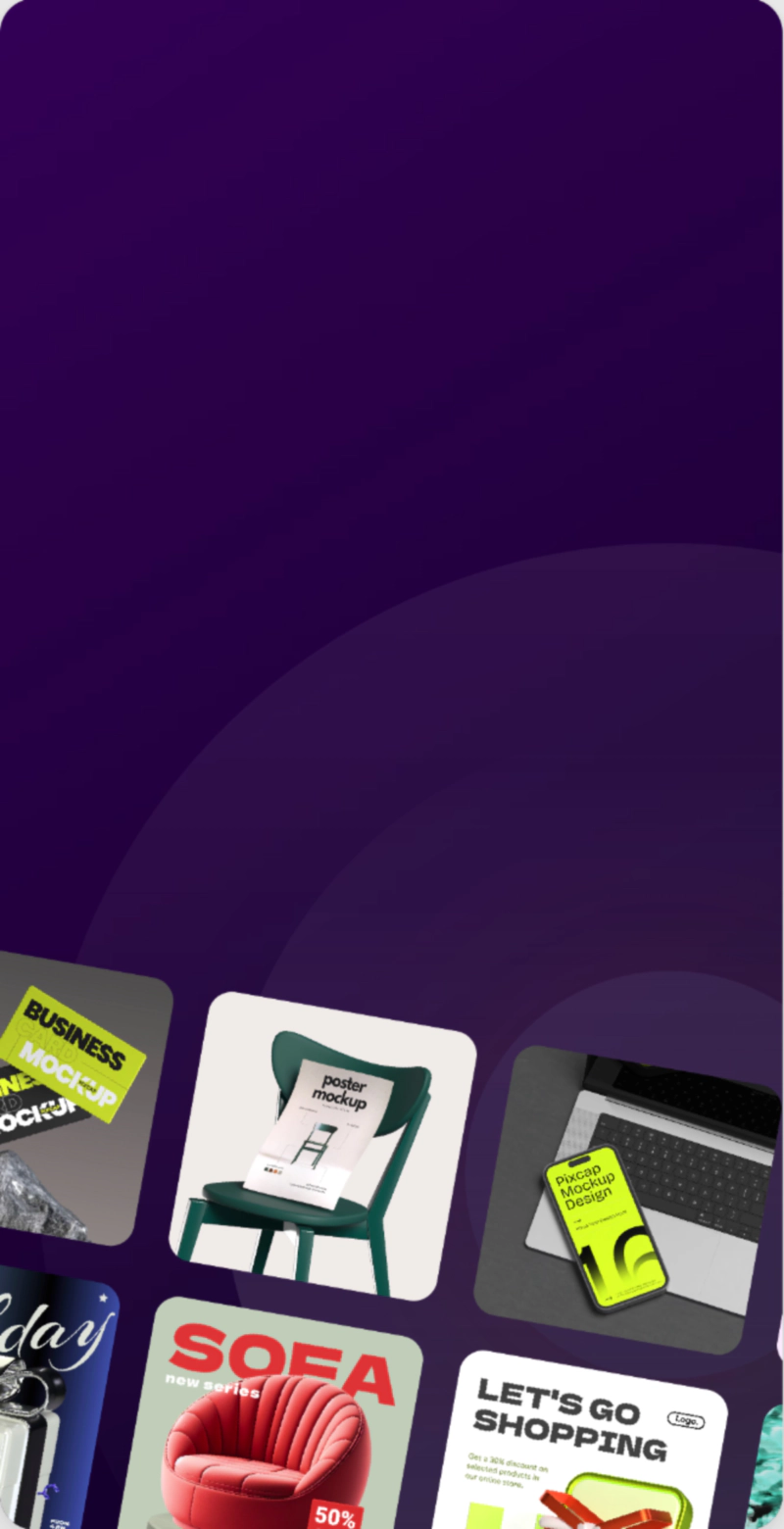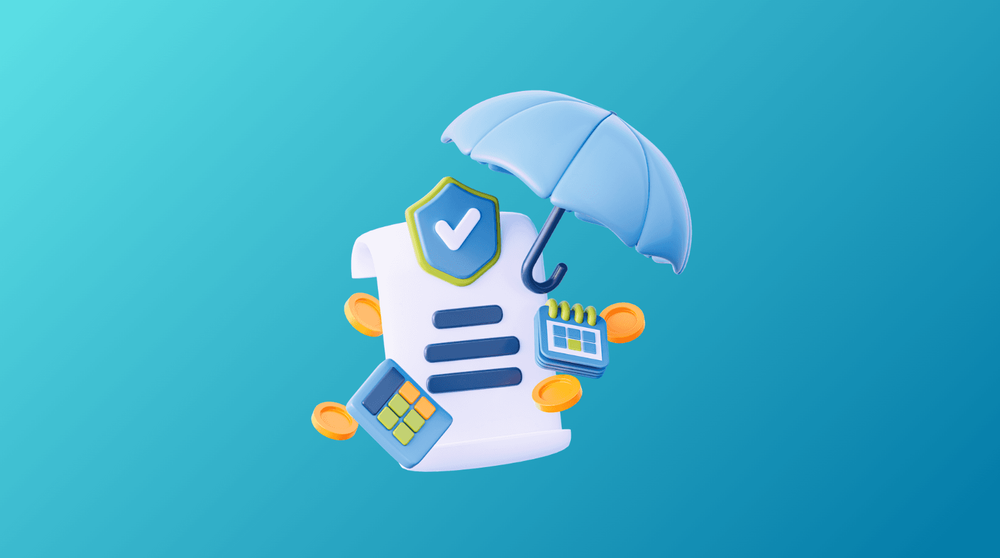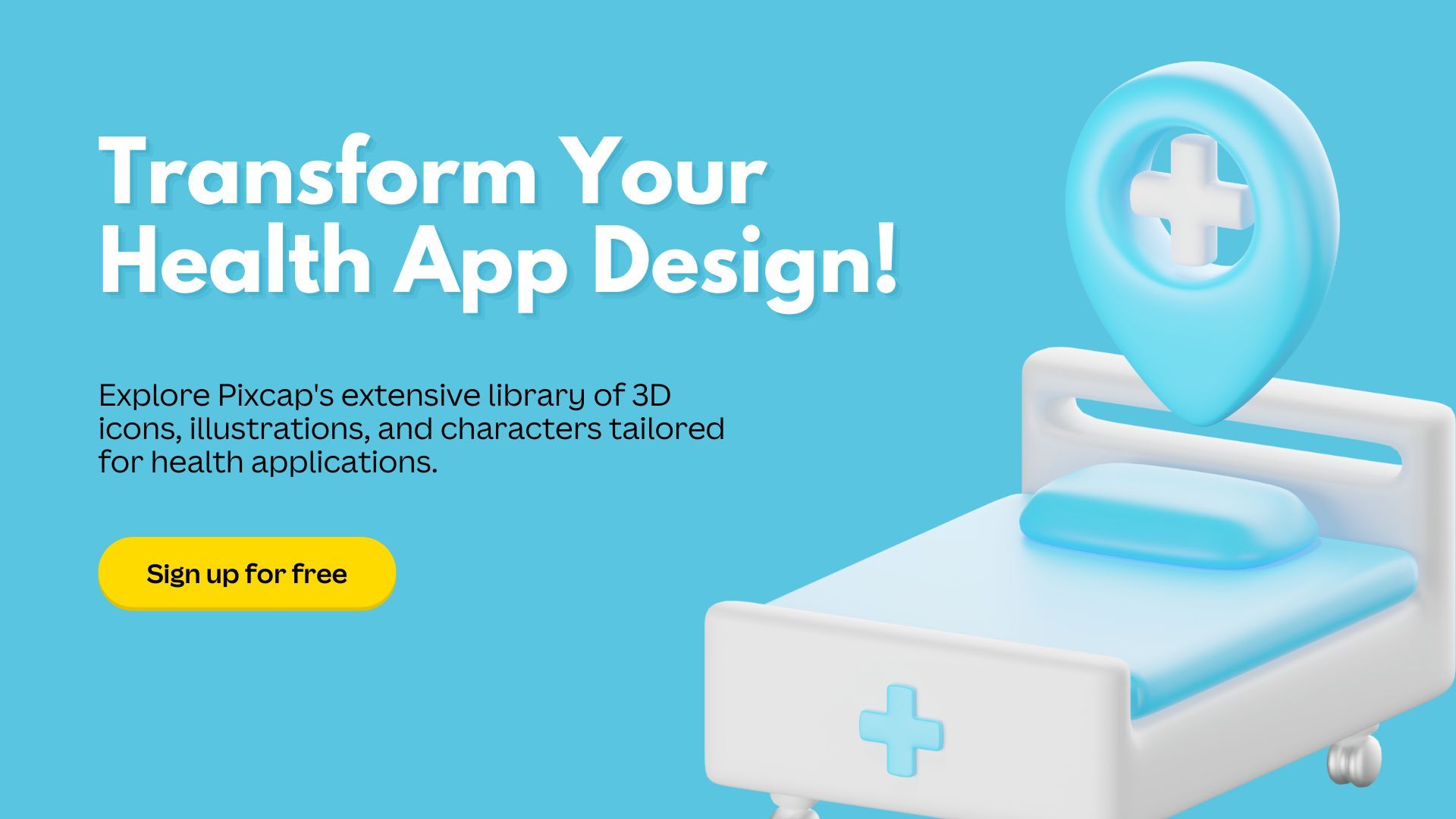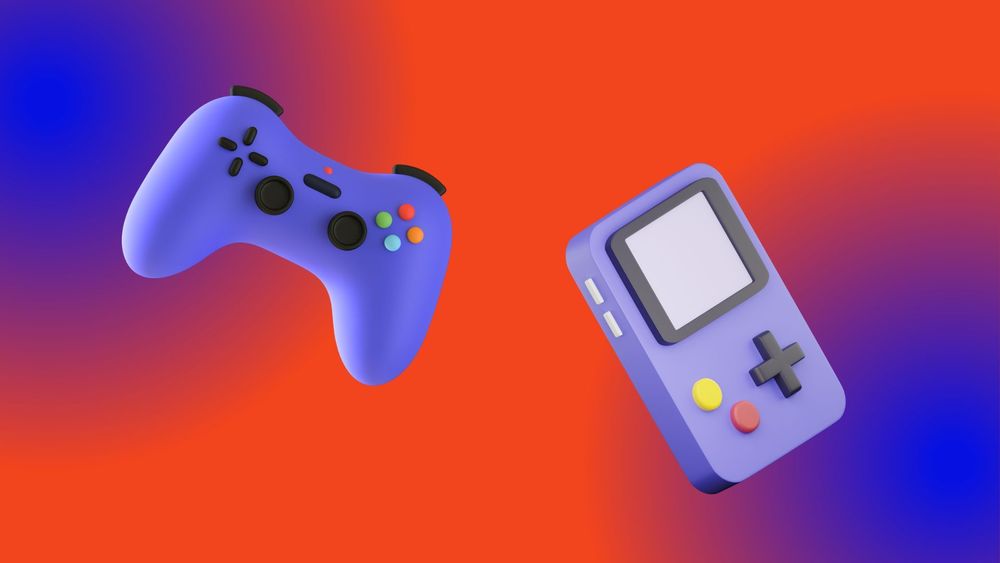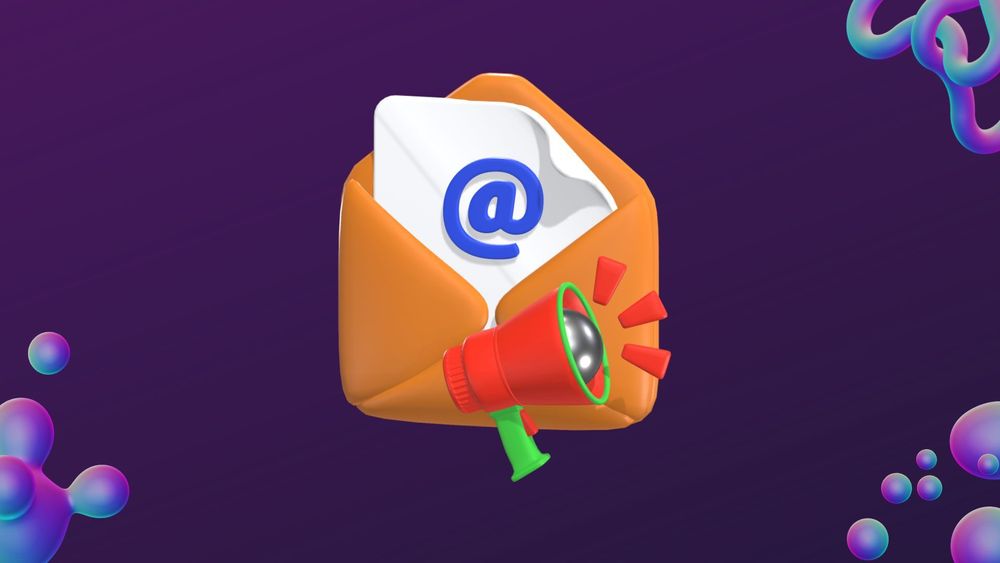Healthcare apps have the potential to enhance patient engagement, streamline processes, and improve overall health outcomes. But designing an app for this field comes with its unique set of challenges and responsibilities. From ensuring user privacy and complying with regulations to crafting an intuitive interface that caters to both healthcare professionals and patients, there’s a lot to consider.
In this guide, we’ll explore the critical elements of healthcare app development, share best practices, and provide insights to help you create user-friendly, effective applications that can truly make a difference.
What is Healthcare App Development?
Healthcare app development involves the creation of software applications designed for mobile devices, aiming to enhance healthcare services and improve patient outcomes. Healthcare application development is integral to modernizing the healthcare industry, as it benefits both patients and healthcare providers by enhancing efficiency, streamlining processes, and improving overall healthcare experiences.
The development process includes designing, developing, and deploying mobile apps that meet the specific needs of healthcare professionals, patients, and organizations. By tailoring these applications to cater to diverse requirements, developers can facilitate better management of patient data, streamline medical processes, and support healthcare professionals in delivering high-quality care.
Customize and download 15,000+ 3D icons and illustrations for health website and app design. Start designing for free now!
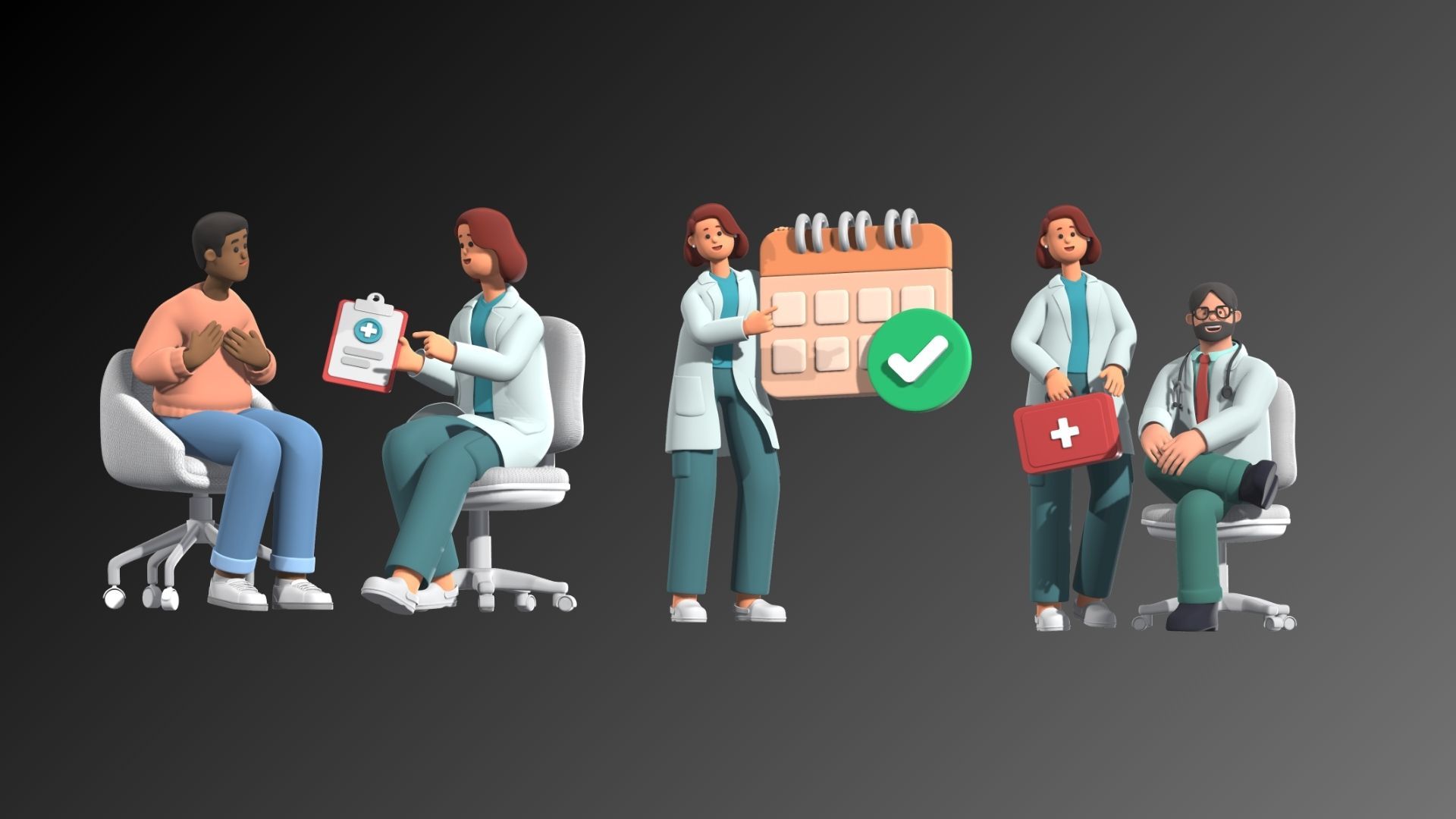
How Is Healthcare App Development Different from Other Industries?
The healthcare industry is highly regulated, and therefore, healthcare software development requires adherence to strict compliance measures. Developers need to be aware of data protection regulations such as Health Insurance Portability and Accountability Act (HIPAA) in the United States, or General Data Protection Regulation (GDPR) in Europe.
Moreover, healthcare apps must meet stringent security standards to ensure patient privacy. As these applications handle sensitive personal health information, their design must include robust security features such as encryption and user authentication.
In addition to regulatory requirements, healthcare app development also needs to consider the unique needs of both patients and healthcare professionals. For instance, patients may require a user-friendly interface that allows for easy communication with their doctors or access to their medical records. On the other hand, healthcare professionals may need features such as appointment scheduling, medication reminders, and remote patient monitoring to effectively manage their patients’ care.
Types of Healthcare Mobile Apps
Healthcare Apps for Hospitals and Medical Professionals
There are several apps designed specifically for medical professionals. These include telemedicine platforms that allow doctors to consult with patients remotely, saving time and providing convenience. Medical reference apps help professionals access up-to-date information quickly, while clinical decision support systems assist in making informed decisions based on the latest data.
Integrating mobile applications with existing healthcare systems through electronic health records is crucial for enhancing user interaction and improving interoperability among different healthcare systems.
Hospitals can also benefit from various apps. Patient engagement platforms help improve communication between patients and medical staff, enhancing the overall care experience. Appointment scheduling apps simplify the process of booking and managing patient visits. Additionally, hospital information systems streamline the organization and management of hospital operations, making everything run more smoothly.
Fitness Apps
Fitness apps are a popular type of healthcare app that helps users track their physical activity, diet, and other health-related metrics. These apps often include features such as workout routines, calorie tracking, and progress monitoring, making it easier for users to stay on top of their fitness goals. By providing personalized recommendations and tracking tools, fitness apps empower users to lead healthier lifestyles.
Examples of popular fitness apps include MyFitnessPal, which offers comprehensive calorie tracking and nutrition information; Fitbit, which syncs with wearable devices to monitor physical activity and sleep patterns; and Nike Training Club, which provides a variety of workout routines and training programs. These apps demonstrate the diverse functionalities that fitness apps can offer, catering to different user needs and preferences.
Mental Health/Mindfulness Apps
Mental health and mindfulness apps are designed to help users manage their mental wellbeing. These apps often include features such as meditation and relaxation techniques, mood tracking, and cognitive behavioral therapy exercises. By providing tools and resources for mental health management, these apps support users in maintaining their mental health and reducing stress.
Popular mental health and mindfulness apps include Headspace, which offers guided meditation and mindfulness exercises; Calm, known for its relaxation techniques and sleep stories; and Happify, which uses evidence-based activities and games to improve mental wellbeing. These apps illustrate the various ways in which mental health and mindfulness apps can support users in achieving better mental health.
Diagnostic Tests App for Preventive Care
Diagnostic tests apps play a crucial role in preventive care by helping users identify potential health risks and take proactive measures. These apps often include features such as symptom checkers, risk assessments, and personalized health recommendations. By providing users with valuable insights into their health, diagnostic tests apps enable early detection and intervention, which can prevent the progression of diseases.
Examples of popular diagnostic tests apps include WebMD, which offers a comprehensive symptom checker and health information; Mayo Clinic, providing expert advice and health assessments; and MedlinePlus, which offers reliable health information and resources. These apps demonstrate the importance of diagnostic tests apps in promoting preventive care and empowering users to take charge of their health.
Nutrition/Lifestyle Management App
Nutrition and lifestyle management apps are designed to help users make healthy choices about their diet and lifestyle. These apps often include features such as meal planning, nutrition tracking, and lifestyle coaching, providing users with the tools they need to achieve their health goals. By offering personalized recommendations and tracking tools, these apps support users in maintaining a healthy lifestyle.
Popular nutrition and lifestyle management apps include MyNetDiary, which offers detailed nutrition tracking and meal planning; Lose It!, which focuses on weight loss through calorie tracking and goal setting; and YAZIO, which provides personalized meal plans and nutrition advice. These apps highlight the diverse functionalities of nutrition and lifestyle management apps, catering to different user needs and preferences.
Benefits of Healthcare Apps
Improved Patient Engagement
One of the main benefits of healthcare apps is increased patient engagement and empowerment. By providing patients with easy access to their health information, appointment scheduling, and communication with healthcare providers, these apps allow patients to take a more active role in managing their own health. This can lead to better health outcomes and an overall feeling of control over one’s healthcare journey. A mobile healthcare app enhances health outcomes by providing patients with essential information and tools for health management.
Increased Efficiency
Streamlined clinical workflows help make healthcare processes smoother and reduce the amount of administrative work. This allows healthcare professionals to focus more on patient care. Additionally, better communication between healthcare professionals and patients leads to improved understanding and collaboration in treatment.
Improved Access to Health Information
Healthcare apps make it easier for patients to access their medical records, test results, and other important health information. This can be especially beneficial for individuals with chronic conditions who need to regularly monitor and manage their health. With just a few taps on their phone, patients can have all the information they need at their fingertips.
Enhanced Communication and Care Coordination
Healthcare apps allow for seamless communication between patients and healthcare providers. This can improve care coordination, as information can be shared more efficiently and in real-time. In emergency situations, this can be crucial for providing timely and effective treatment.
Better Data Collection and Analysis
With the use of healthcare apps, patient data can be collected and analyzed in a more efficient and accurate manner. This can lead to better insights into health trends and outcomes, allowing for more personalized and effective treatment plans.
How to Develop a Healthcare App
Developing a healthcare app requires careful planning, collaboration, and adherence to regulatory guidelines. Here are some steps to consider when developing a healthcare app:
1. Define Your App’s Idea and Goal
Consider what specific problem your healthcare app aims to solve and the audience it will serve. Whether it's enhancing patient-doctor communication or simplifying health data management, having a clear objective is crucial.
Research your target market to understand their needs and habits, and tailor your app features accordingly. This groundwork ensures your app is relevant and valuable, ultimately leading to higher user engagement and satisfaction in the competitive healthcare industry.
2. Conduct Market and Regulatory Research
Before diving into app development, it's essential to understand the market and regulatory landscape. Familiarize yourself with relevant laws and regulations, such as HIPAA, GDPR, and FDA guidelines.
Knowing these requirements will ensure your app complies with industry standards for privacy, security, and data protection. It also helps you anticipate potential challenges during the development process.
3. Collaborate with Healthcare Professionals
Collaboration with healthcare professionals is crucial in developing a successful healthcare app. They can provide valuable insights into the needs of patients and clinicians, ensuring your app meets their expectations. Selecting the right custom development partner, such as healthcare app developers, is also essential for creating mobile healthcare applications that comply with data privacy, security measures, and regulations like HIPAA.
Involving healthcare professionals throughout the development process can also aid in obtaining necessary approvals and certifications for your app.
4. Design an Intuitive User Interface
An intuitive user interface (UI) is critical for a healthcare app's success. It should be easy to navigate, visually appealing, and provide an excellent user experience. Additionally, it should adhere to accessibility guidelines to cater to users with disabilities.
Consider conducting usability testing to gather feedback from potential users and make necessary improvements. A well-designed UI can enhance user engagement and encourage them to use the app regularly.
5. Choose the Right Platform and Technologies
Selecting the right platform and technologies for your healthcare app is crucial. Effective healthcare mobile application development is essential in meeting patient needs and leveraging technology to enhance healthcare services. Consider factors such as target audience, desired features, and budget when deciding between iOS, Android, or cross-platform development.
Also, choose technologies that align with your app’s goals and comply with regulatory requirements. For example, if your app deals with sensitive patient data, ensure it has robust security measures in place.
6. Select a Monetization Strategy
Monetization strategies for healthcare apps can include in-app purchases, subscription models, or advertisements. It's essential to carefully consider which strategy aligns with your app's purpose and target audience.
Additionally, be transparent about any potential costs for users upfront to avoid negative reviews and user drop-offs later on.
7. Develop an MVP and Gather Feedback
An MVP (minimum viable product) is a version of your app with the core features necessary for it to function. Developing an MVP can help you launch your app quickly, gather user feedback, and make improvements based on their needs.
Consider conducting beta testing to get feedback from early users and make necessary changes before launching the final version.
8. Launch and Update Regularly
Once you have a well-designed and functional healthcare app, it's time to launch it into the market. Be sure to promote your app through various channels, such as social media and healthcare industry websites.
Additionally, regularly update your app with new features, bug fixes, and improvements based on user feedback. This will help keep users engaged and satisfied with your app.
Security Considerations for Healthcare Mobile Apps
With the sensitive nature of healthcare data, security is a critical consideration for mobile app developers. Here are some essential security measures to keep in mind:
- Data encryption: Ensure that all data, both in transit and at rest, is encrypted to prevent unauthorized access.
- User authentication: Implement secure user authentication methods, such as two-factor authentication or biometric verification, to ensure only authorized users can access the app.
- Regular security checks: Conduct regular security audits and penetration testing to identify any vulnerabilities and address them promptly.
- Compliance with regulations: Make sure your app complies with relevant regulations, such as HIPAA (Health Insurance Portability and Accountability Act), if it deals with sensitive patient data.
- Secure coding practices: Follow secure coding practices to prevent common vulnerabilities, such as SQL injection and cross-site scripting.
- Secure data storage: Use secure servers or cloud storage services to store sensitive healthcare data.
- Secure communication: Ensure that all communication between the app and its servers is secure, using protocols like HTTPS.
Remember, security should be an ongoing concern, not just a one-time consideration. Regularly update your app's security measures to keep up with evolving threats and protect your users' data.
Medical App Development Best Practices
Following all the Compliance Rules
Developing a healthcare app means adhering to strict regulatory compliance rules. These regulations, such as the Health Insurance Portability and Accountability Act (HIPAA), ensure that patient data is kept secure and confidential. Failure to comply with these rules can result in hefty fines and legal consequences for both the app developer and healthcare organization.
Single-Focused Purpose
It is important to keep the purpose of the medical app clear and specific. Medical apps should serve a single function, such as tracking health data or providing patient education. Adding unnecessary features can increase the risk of security breaches and may also confuse users.
Selection of Feature Set
When designing a medical app, it is crucial to carefully select the features that will be included. Too many features can lead to a cluttered and confusing user interface. It's important to prioritize essential features and consider feedback from healthcare professionals and patients to determine what will provide the most value.
Hack-Proof Cybersecurity
Medical apps must have robust cybersecurity measures in place to protect sensitive patient data from cyber attacks. This includes implementing strong encryption, regular security updates, and thorough testing for vulnerabilities.
Hardware Choice
Consider the hardware and operating systems that will support the app. Different devices may have different capabilities and limitations, so it's important to choose a platform that can accommodate the desired features and provide a seamless user experience.
Choice of APIs and Integrations
Choosing the right APIs and integrations is crucial for ensuring the app can communicate with other systems and devices. It's important to carefully research and select reputable APIs and integrations that comply with industry standards, such as HL7 or FHIR.
Involving Healthcare Professionals
To create a successful medical app, it's essential to involve healthcare professionals in the development process. They can provide valuable insights into user needs and preferences, as well as offer guidance on compliance with regulations and best practices.
User-Centric Design
A user-centric design approach is crucial for creating a medical app that is easy to use and meets the needs of both healthcare professionals and patients. This involves conducting user research, usability testing, and incorporating feedback throughout the design process.
Essential Features of a Healthcare Application
Telemedicine or Telehealth
With the rise of virtual healthcare, it's becoming increasingly important for medical apps to have telemedicine or telehealth capabilities. This allows patients to schedule appointments, consult with healthcare professionals remotely, and receive virtual treatment.
Electronic Health Record (EHR) Integration
Integrating with an EHR system is essential for medical apps that need access to patient records and health information. This integration should be secure and comply with regulations such as the Health Insurance Portability and Accountability Act (HIPAA). Choosing a healthcare app development company with technological expertise and a deep understanding of the healthcare industry is crucial for creating successful, HIPAA-compliant applications that improve patient care and enhance healthcare operations.
Notifications and Alerts
Notifications and alerts can be used to remind patients of appointments or medication schedules, as well as notify healthcare professionals of important updates or urgent cases. These features should be customizable and easily accessible.
User Dashboard
A user dashboard is a central hub within the app where patients and healthcare professionals can access important information, such as appointment schedules, medication lists, test results, and more. It should be easy to navigate and provide relevant data at a glance.
Payment Integration
Medical apps with payment integration allow patients to pay for services or medication directly through the app. This feature should be secure and user-friendly, making it convenient for patients to manage their healthcare expenses.
Wearable Devices Connection
Wearable devices, such as fitness trackers or smartwatches, can provide valuable health data that can be integrated into the app. This allows patients to easily track their health and progress, and for healthcare professionals to have a more holistic view of the patient's health.
Secure Login and Patient Profile
A secure login and patient profile is crucial for protecting sensitive health information. Patients should be able to securely access their profiles, update their personal information, and view their medical history.
Appointments and Reminders
The ability to schedule appointments and set reminders for medication or follow-up visits is a convenient feature for both patients and healthcare professionals. It helps ensure that patients do not miss important appointments and promotes better management of chronic conditions.
Secure Messaging
Secure messaging within the app allows patients to communicate with their healthcare providers, ask questions, and receive important updates. This feature can help improve communication between patients and healthcare professionals, leading to better health outcomes.
Health Tracking and Monitoring
Medical apps can also include features for tracking and monitoring specific health conditions, such as blood glucose levels for diabetics or blood pressure for patients with hypertension. This data can be shared with healthcare providers to aid in diagnosis and treatment.
Emerging Technologies Used for Healthcare Mobile App Development
As technology continues to advance, there are always new and emerging technologies being used in the development of healthcare mobile apps. Some of these include:
Artificial Intelligence
AI-powered chatbots and virtual assistants are becoming more common in our daily lives. These technologies can help us by answering questions, setting reminders, and even providing customer support. They make it easier to get things done quickly and efficiently.
Predictive analytics and personalized health recommendations use data to forecast potential health issues and suggest ways to improve well-being. By analyzing patterns and trends, these tools can offer tailored advice, helping people make informed decisions about their health.
Cloud Computing
Cloud-based storage allows medical records and health information to be stored and processed online. This means that doctors and patients can access important data from anywhere with an internet connection. It makes managing health information easier and more efficient.
Healthcare organizations often need to grow and change, and cloud-based solutions offer scalability and flexibility. This means that as a healthcare organization expands, the cloud system can easily adapt to handle more data and more users without a hassle. This adaptability is crucial for meeting the needs of growing healthcare facilities.
AR and VR
Virtual and augmented reality are becoming key tools in healthcare, especially for patient education and training. They offer interactive and immersive experiences, helping patients understand their conditions and treatments better. This makes complex medical information more accessible.
Moreover, these technologies enhance patient engagement, creating an interactive environment that fosters involvement in their care, leading to better outcomes and a more positive healthcare experience.
Internet of Things (IoT)
The Internet of Things (IoT) is the network of connected devices that can collect and exchange data over the internet. In healthcare, this includes wearable fitness trackers, smart medical devices, and even hospital equipment.
By gathering real-time data, IoT devices can provide valuable insights into a patient's health status. This allows for early detection and intervention in case of any abnormalities or changes in health. It also enables remote patient monitoring, reducing the need for frequent in-person visits to a healthcare facility.
Big Data
Analyzing large datasets can help us find meaningful insights and trends. By examining these vast collections of information, we can uncover patterns and understand what is happening in different areas, whether it's in business, health, or other fields.
With this knowledge, we can offer personalized health recommendations. By using data and predictive analytics, we can predict health outcomes and provide advice tailored to individual needs, helping people make better decisions and improve their well-being.
Trends in Healthcare App Development
Personalized Medicine
Personalized health recommendations use an individual's lifestyle, genetics, and health history to suggest the best choices for their well-being. This helps people make informed health decisions with guidance tailored to their needs.
Predictive analytics in healthcare uses data to forecast future health outcomes. By examining patterns and trends, professionals can anticipate health issues and take steps to prevent them, aiding disease management and maintaining health.
Tailored treatment plans create specific strategies for each person based on their conditions and preferences. These plans ensure effective treatment that fits the patient's needs, improving disease management and overall health.
Interoperability Standards
Standardized APIs and data formats make it easy to connect different systems. By using the same standards, everything can work together smoothly without any extra hassle.
Interoperability is crucial in the healthcare industry. It ensures that various systems and devices can communicate efficiently. This means healthcare providers can access and share important information quickly, improving patient care.
Focus on Mental Health
Mental health and wellness apps are becoming more popular as they help people manage their well-being. These apps offer features like meditation exercises, mood tracking, and stress-relief techniques. They are user-friendly, making it easy for individuals to focus on their mental health in their own time.
Personalized recommendations and predictive analytics are also gaining traction. These tools use data to tailor health advice, helping people make informed lifestyle decisions. By predicting potential health issues, they empower people to take preventative measures, promoting a proactive approach to well-being.
Challenges in Healthcare App Development
Lack of Detailed Focus in One Domain
Many people find it hard to focus on a specific area of expertise or specialty. This challenge can make it difficult for them to narrow down their interests and choose a particular path to follow.
Additionally, not having enough expertise and knowledge in a specific field can be a barrier. Without the necessary skills and information, it becomes harder to succeed or feel confident in that area.
Non-Compliance with the Law
Not following important rules, like those from HIPAA and the FDA, can lead to big problems. These regulations are in place to protect sensitive information and ensure safety. Ignoring them can result in penalties and risks.
Many people struggle because they don't fully understand compliance and security measures. It's crucial to have a clear grasp of these concepts to protect data and maintain trust. Learning about these measures can help avoid mistakes and keep everything secure.
Lack of Security
Many businesses struggle with inadequate security and poor data protection, leaving their information vulnerable. This puts sensitive data at risk.
Another major concern is the threat of data breaches and cyber attacks. Hackers can exploit weak security to steal information or disrupt operations, harming a company’s reputation and finances. To prevent these issues, businesses must strengthen their security and protect their data.
Presence of Multiple Channels and Devices
Integrating with multiple channels and devices can be quite complex. Each channel or device may have its own unique requirements and systems, making it challenging to connect them all smoothly.
Ensuring seamless integration and interoperability is another significant challenge. It is essential to make sure that different systems and technologies work together without any issues, which can be difficult to achieve.
Conclusion
We hope you’re feeling inspired and equipped with the knowledge to tackle your next project in this dynamic field. As we've discussed, developing a healthcare app is not just about technology; it’s about creating meaningful experiences that can truly impact lives.
Remember, the key to success lies in understanding your users, prioritizing their needs, and staying up-to-date with industry regulations. The healthcare landscape may be complex, but with a thoughtful approach, you can design apps that are not only functional but also enhance the overall patient experience.
